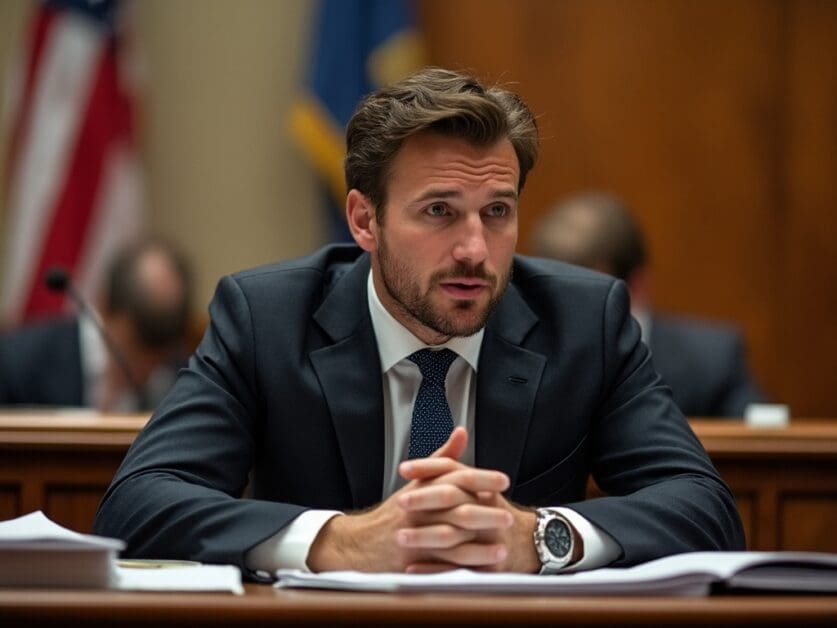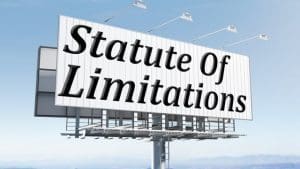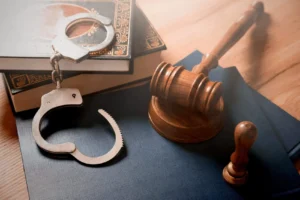Will My Slip and Fall Case Go to Court with a Slip and Fall Lawyer?
Slip and fall accidents are a common occurrence, but the legal journey that follows such incidents can be complex. Many victims of slip and fall accidents wonder if their case will end up in court or whether a slip and fall lawyer can settle it outside the courtroom. The answer depends on a variety of factors, including the strength of the evidence, the willingness of the responsible party to negotiate, and the overall legal strategy. In this detailed article, we will explore how slip and fall lawyers assess a case, the potential outcomes, and what happens when a case goes to court.
Slip and fall accidents typically occur when someone is injured due to unsafe conditions on someone else’s property. This type of accident falls under premises liability, where property owners are legally obligated to maintain a safe environment. Whether or not your slip and fall case will go to court often depends on the specific details of the accident, the extent of your injuries, and the property owner’s responsibility for the incident.
What Is Premises Liability in Slip and Fall Cases?
Premises liability is the legal principle that holds property owners and occupiers responsible for injuries sustained on their property. In slip and fall cases, the injured party must prove that the property owner was negligent in maintaining their property and that this negligence directly caused the injury. Examples of dangerous conditions that can lead to slip and fall accidents include wet floors, uneven pavement, and poor lighting.
A slip and fall lawyer plays a critical role in establishing premises liability. They must gather evidence, such as photos of the hazardous condition, witness statements, and maintenance records, to prove that the property owner failed to uphold their duty of care. If the lawyer can demonstrate negligence, the injured party may be entitled to compensation for medical expenses, lost wages, and pain and suffering.
Property owners often dispute these claims, arguing that the injured party was at fault for not paying attention or that the dangerous condition was obvious. This is where the expertise of a slip and fall lawyer becomes invaluable. By understanding the nuances of premises liability law and building a strong case, the lawyer can counter these defenses and fight for the client’s rights.
Steps a Slip and Fall Lawyer Takes to Prepare for a Case
When you hire a slip and fall lawyer, they will begin by evaluating the details of your accident. This initial consultation is critical for determining whether your case has merit and if it is likely to go to court. Lawyers will ask detailed questions about where the accident occurred, the condition of the property, and the severity of your injuries.
Gathering Evidence
One of the most important steps in preparing for a slip and fall case is gathering evidence. This includes collecting photographs of the scene, reviewing surveillance footage if available, and obtaining statements from witnesses who saw the accident. In some cases, the lawyer may hire experts to reconstruct the accident or assess the condition of the property.
Additionally, medical records will be essential in proving the extent of your injuries and how they directly resulted from the slip and fall. Medical expenses can include hospital bills, physical therapy, and ongoing treatments, all of which are crucial when calculating the compensation you may be entitled to.
Filing a Claim
Once the lawyer has gathered enough evidence, they will file a personal injury claim against the responsible party, typically the property owner or their insurance company. The claim will outline the facts of the case, the evidence supporting your injuries, and a demand for compensation.
At this point, the property owner’s insurance company may either accept the claim and agree to a settlement or deny the claim outright, prompting further legal action. If the insurance company denies the claim, it becomes more likely that the case will go to court.
Will My Slip and Fall Case Settle Out of Court?
The vast majority of slip and fall cases are settled out of court, and for good reason. Trials are expensive and time-consuming for all parties involved. Settling out of court is often the quickest and most efficient way to resolve a case, especially when the evidence is strong, and the property owner is eager to avoid a public trial.
Negotiating a Settlement
Before a case goes to trial, your lawyer will attempt to negotiate a settlement with the insurance company or the property owner’s legal team. During these negotiations, your lawyer will present the evidence of the property owner’s negligence and argue for fair compensation. Settlement offers typically cover medical bills, lost wages, and other damages such as pain and suffering.
It’s important to remember that the initial offer made by the insurance company may be much lower than what you are entitled to. This is a common tactic used to minimize payouts. However, an experienced slip and fall lawyer will push back against low offers and negotiate a settlement that reflects the true extent of your injuries and damages.
Factors That Influence Settlements
Several factors can influence whether your case settles or goes to trial. If the evidence of the property owner’s negligence is overwhelming, the defense may be more inclined to settle to avoid the risk of losing at trial. On the other hand, if liability is unclear or the insurance company believes it has a strong defense, they may be less willing to settle, leading to a court case.
Your lawyer will assess these factors and advise you on whether accepting a settlement is in your best interest. Sometimes, proceeding to court is the only way to obtain the compensation you deserve.
When Will a Slip and Fall Case Go to Court?
While settlements are common, not all slip and fall cases resolve without a trial. Several scenarios may push a case into the courtroom. Understanding these factors can help you prepare for the possibility that your slip and fall case may go to court.
Disputes Over Liability
In many slip and fall cases, the property owner disputes their responsibility for the accident. They may argue that the hazardous condition was not dangerous enough to cause injury or that the injured party was negligent in avoiding the hazard. When liability is in question, it often leads to prolonged negotiations or, ultimately, a trial.
For example, a property owner might claim that the condition was “open and obvious,” meaning any reasonable person would have noticed and avoided the hazard. In these cases, your lawyer must present strong evidence to counter this argument, showing that the property owner failed to address a dangerous condition that caused your injuries.
Disputes Over Compensation
Another reason a slip and fall case might go to court is if there is a dispute over the amount of compensation. The insurance company may argue that your injuries are not as severe as claimed or that your medical expenses are inflated. In these situations, your lawyer will work to prove the full extent of your injuries and the impact they have had on your life.
If the insurance company refuses to offer a fair settlement, your lawyer may recommend taking the case to court. By presenting your case to a jury, you have the opportunity to seek the full compensation you are entitled to.
What Happens When a Slip and Fall Case Goes to Court?
If your case does go to court, your slip and fall lawyer will guide you through every step of the process. Going to court can be intimidating, but with a skilled lawyer by your side, you can feel confident that your case is being handled properly.
Preparing for Trial
Before the trial begins, both sides will go through a process known as discovery, during which they exchange evidence and information related to the case. This phase allows both parties to build their arguments and prepare for trial. Your lawyer may also take depositions, interviewing witnesses and the opposing party under oath to gather more evidence.
During trial preparation, your lawyer will develop a legal strategy for presenting your case to the jury. This includes preparing opening statements, examining witnesses, and presenting evidence that demonstrates the property owner’s negligence and the damages you suffered.
The Trial Process
Once the trial begins, both sides will present their cases to the judge and jury. Your lawyer will begin by making an opening statement, outlining the facts of the case and why the property owner is responsible for your injuries. The defense will then present their side, attempting to refute the claims and argue that they are not liable for the accident.
Throughout the trial, your lawyer will present evidence, call witnesses, and cross-examine the defense’s witnesses to challenge their credibility. Expert witnesses, such as medical professionals, may also be called to testify about the extent of your injuries and how they impact your daily life.
Verdict and Compensation
After both sides have presented their cases, the jury will deliberate and reach a verdict. If the jury finds in your favor, they will determine the amount of compensation you should receive. This compensation typically includes medical expenses, lost wages, pain and suffering, and any other damages related to the accident.
If the jury rules against you, your lawyer may file an appeal to challenge the decision. However, appeals are rare, and most cases are resolved after the trial concludes.
Legal Challenges in Slip and Fall Cases
Slip and fall cases present unique legal challenges compared to other personal injury cases. These challenges often stem from the complexity of premises liability law, the difficulty in proving negligence, and the involvement of multiple parties.
Proving Negligence in Slip and Fall Cases
One of the primary challenges in slip and fall cases is proving that the property owner was negligent. This requires showing that the owner knew or should have known about the dangerous condition and failed to address it. However, proving that the property owner had actual or constructive knowledge of the hazard can be difficult, especially if the condition was temporary, such as a spill on the floor.
To overcome this challenge, your lawyer will gather evidence that demonstrates the property owner’s failure to maintain a safe environment. This may include maintenance records, surveillance footage, or witness testimony showing that the hazardous condition existed long enough for the property owner to address it.
Comparative Negligence
In some cases, the defense may argue that the injured party was partially responsible for the accident. This is known as comparative negligence, and it can reduce the amount of compensation awarded. For example, if the jury finds that you were 20% at fault for the accident, your compensation will be reduced by 20%.
To counter this argument, your lawyer will present evidence that minimizes your level of fault. This may include demonstrating that the hazardous condition was not clearly marked or that the property owner failed to take reasonable steps to prevent accidents.
The Role of Insurance Companies
Insurance companies play a significant role in slip and fall cases, as they are typically responsible for paying out settlements or verdicts. However, insurance companies often attempt to minimize payouts by disputing liability or offering low settlement amounts.
Your lawyer will work closely with the insurance company throughout the case, negotiating for a fair settlement and preparing for trial if necessary. It’s important to remember that insurance companies are primarily focused on protecting their bottom line, so having an experienced lawyer on your side is crucial for securing the compensation you deserve.
Conclusion
Deciding whether your slip and fall case will go to court depends on various factors, including the strength of the evidence, disputes over liability, and the willingness of the insurance company to offer a fair settlement. While many cases settle out of court, some proceed to trial when liability or compensation is in question. A skilled slip and fall lawyer will assess your case, gather evidence, and negotiate on your behalf, ensuring that your rights are protected whether in settlement negotiations or in the courtroom.




















